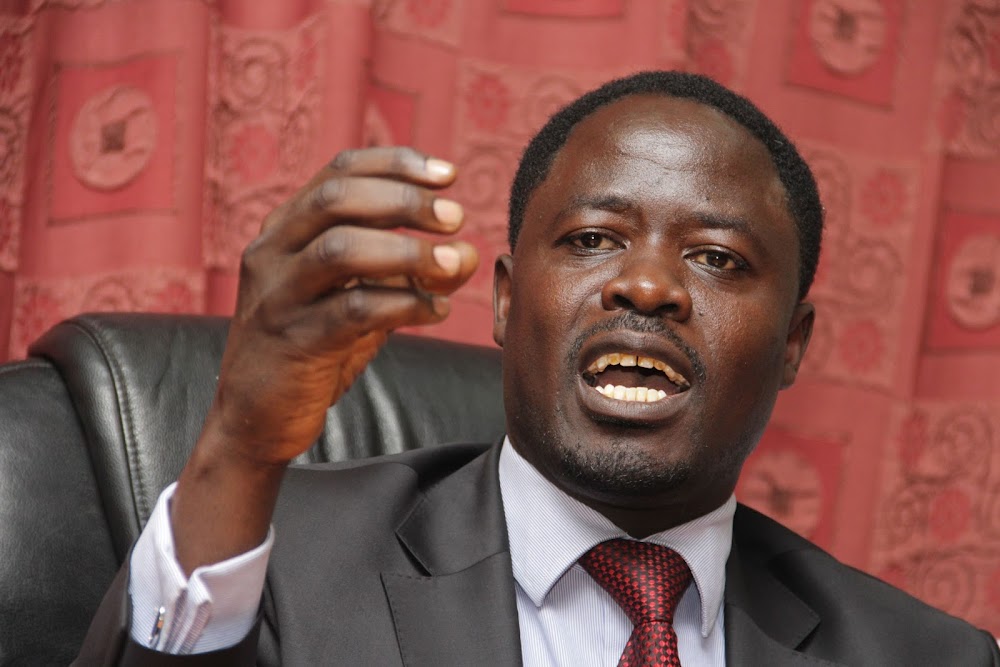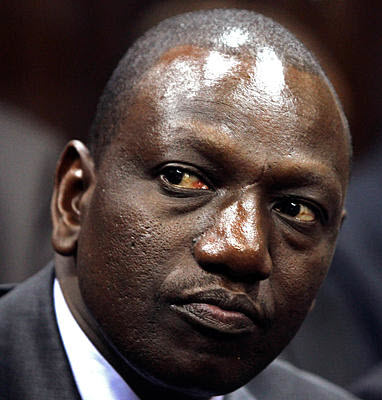Fight for LGBTQ rights in Kenya: 1 win in court, 2 new threats in parliament
Colin Stewart is a 45-year journalism veteran living in Southern…
Anti-LGBTQ legislator seeks anti-LGBTQ constitutional amendment

Turmoil over LGBTQ rights continues in Kenya as it faces the prospects of an anti-LGBTQ constitutional amendment and a harsh, Ugandan-style anti-homosexuality bill even while the Supreme Court insists that an LGBTQ advocacy organization has a right to government recognition.
Last month, the high court reaffirmed its February ruling that the National Gay and Lesbian Human Rights Commission (NGLHRC) has the right to register as a non-governmental organization.
The NGLHRC called the latest ruling “the end of a 10-year-old legal battle that began when the NGO Co-Ordination Board rejected our application to register due to our name’s reference to gays and lesbians.”
An anti-LGBT politician, opposition MP Peter Kaluma, had petitioned the Supreme Court to reverse its February ruling.
In response to the court’s rejection of his petition, Kaluma is seeking a constitutional amendment that would exclude LGBTQ people from protection against discrimination. Such an amendment could start in parliament, then be presented to voters in a national referendum.
At present, the Kenyan constitution bars the government from discriminating on the basis of sex. (Specifically, Article 259 (4) declares that “The State shall not discriminate directly or indirectly against any person on any ground, including race, sex, pregnancy, marital status, health status, ethnic or social origin, colour, age, disability, religion, conscience, belief, culture, dress, language or birth.”)
In many cases, Kenyan officials, including the attorney general, interpret “sex” as including sexual orientation and gender identity, which means that lesbian, gay, bisexual and transgender Kenyas are protected from government discrimination. Kaluma wants to change that through a constitutional amendment.
The Washington Blade reported that “Kaluma has already written to National Assembly Speaker Moses Wetang’ula, notifying him of his proposal to have the term ‘sex’ redefined in the constitution by repealing Article 259 (4) which judges perceive to also include consensual same-sex sexual relations.”
“This will seal the constitutional gaps the courts are exploiting to introduce homosexuality into the country under the guise of ‘judicial interpretation’ and secure the legislative mandate retained in Parliament and constitutional-making power remains with the people,” Kaluma said.
The Washington Blade reported:
In redefining “sex” in law, Kaluma wants the term to be limited to the biological state of being male or female as assigned at birth and not “foreign sexual orientation and gender identity ideology” which he argues the judges based on wrongly. The MPs proposal to redefine sex, however, would not impact intersex people in Kenya since their recognition and sex identity are protected under a landmark law that took effect in July 2022.
Kaluma [declared] that the court’s ruling renders sex/gender fluidity away from the biological state of being male or female “to over 150 current gender categories abbreviated as LGBTQ+” which has serious consequences for women in terms of equality.
“The courts, unelected arms of government not directly accountable to the people, have been the weakest link in the battle for family values across the world. The Supreme Court of the United States failed the Americans and the European courts have failed the Europeans,” the MP said.
Kaluma, who has also sponsored a stiffer anti-homosexuality bill that awaits introduction in the House, added “we are in a war not only to save our society but to salvage humanity from the LGBTQ+ perversion”.
The lawmaker has also sought to strengthen his anti-homosexuality measure by adding punitive clauses, including one that would impose a maximum sentence of 50 years in prison for gays and lesbians who are found guilty of engaging in non-consensual sex. Other provisions include a ban on gay Pride parades, assemblies, street marches, cross-dressing in public and all LGBTQ-related activities.

The MP has also proposed proposes a fine of $14,000 or a 7-year prison sentence for owners of premises used for same-sex sexual practices.
“I urge all persons and institutions of goodwill to stand firm and ready themselves to fight against homosexuality. Even when we don’t win before the courts as is the case across the world, I am certain we will win before the people’s representatives in parliament,” Kaluma stated.
Muslim and Christian religious authorities last [month] staged anti-homosexuality protests in the coastal city of Mombasa, which is the country’s second largest city. Protesters condemned and denounced the Supreme Court’s ruling and asking President William Ruto to “unequivocally denounce LGBTQ” like his Ugandan counterpart, Yoweri Museveni.
The Kenya Muslims National Advisory Council, a leading Muslim governing body, on [Sept. 21] also condemned the Supreme Court and demanded the ouster of Chief Justice Martha Koome and other judges who ruled in favor of the LGBTQ community. The group argues the ruling offends Kenya’s social, cultural and religious beliefs while asking the president and Parliament to be “firm” like Uganda, which enacted a harsh anti-homosexuality law in May.
A presidential education reform working group last month in a detailed report presented to Ruto after gathering views across the country recommended the teachers’ employers to hire pastors and Imams in elementary and high schools to help fight homosexuality and other so-called immoral practices. This call came after the Education Ministry in March confirmed to MPs its decision to form a Chaplains Committee, led by Kenya’s Anglican Church Archbishop Jackson Ole Sapit, to stop “the infiltration of LGBTQ practices in schools.”




